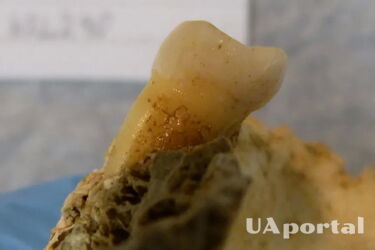Scientists have found bacteria that cause tooth decay in 4,000-year-old teeth

Scientists recently made a sensational discovery: Inside a set of 4,000-year-old human teeth found in a limestone cave in Ireland, the source of the bacteria that causes tooth decay and gum disease has been discovered. These unique remains, which belonged to Bronze Age man, shed light on the oral health of our ancestors.
The cave's cool, dry, and alkaline environment has favored the exceptional preservation of these bacteria, allowing scientists from Trinity College Dublin to gain a rare glimpse of the microorganisms that lived in people's mouths thousands of years ago. The BBC writes about it.
DNA from Streptococcus mutans (S. mutans), a known cause of tooth decay, as well as other germs that cause gum disease, such as Tannerella forsythia, were found in the tooth samples. This discovery is particularly valuable because S. mutans is very difficult to study in ancient samples due to DNA damage.
Scientists managed to reconstruct the genomes of these ancient bacteria, which allowed them to look at the evolution of the human diet in a new way, in particular at the consumption of sugar in ancient times.
The high level of S. mutans in the dental samples suggests that ancient man probably had a significant risk of caries. It could also be a sign of an imbalance in the microbial community in her oral cavity.
The study also highlighted major changes in human diets throughout history, noting an increase in caries with the advent of cereal agriculture and a significant spike in caries from around 1500 AD, which marked the early modern period.
This discovery not only gives us a better idea of the oral health of our ancestors but may also help scientists develop new methods of prevention and treatment of tooth decay and gum disease in our time.
If you want to receive the latest news about the war and events in Ukraine, subscribe to our Telegram channel!
